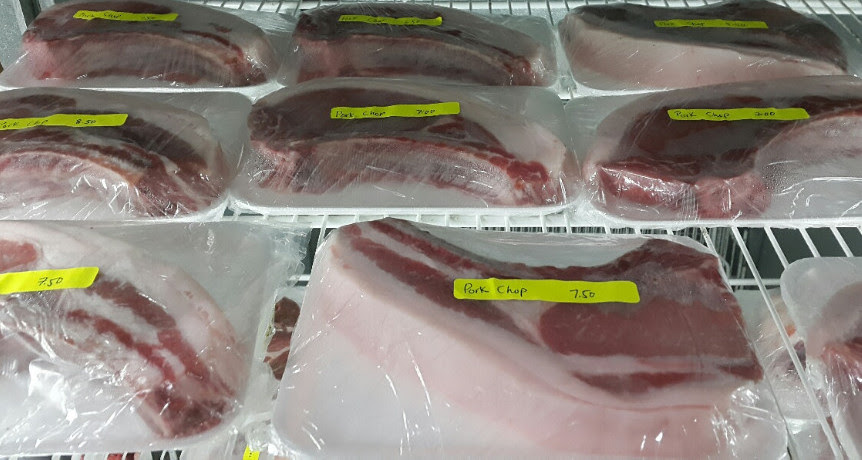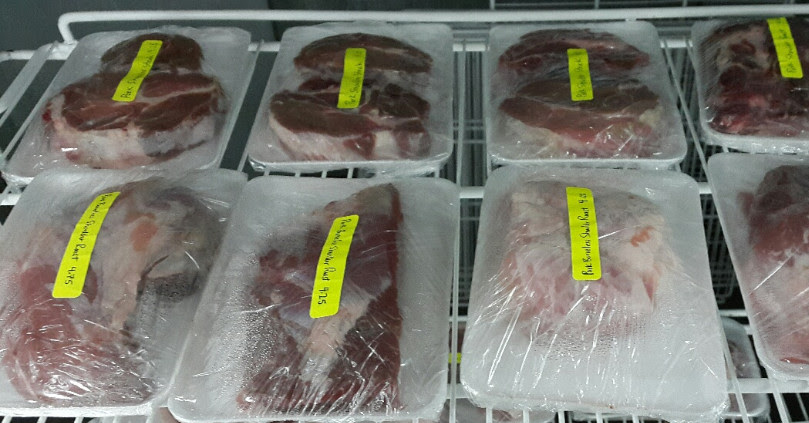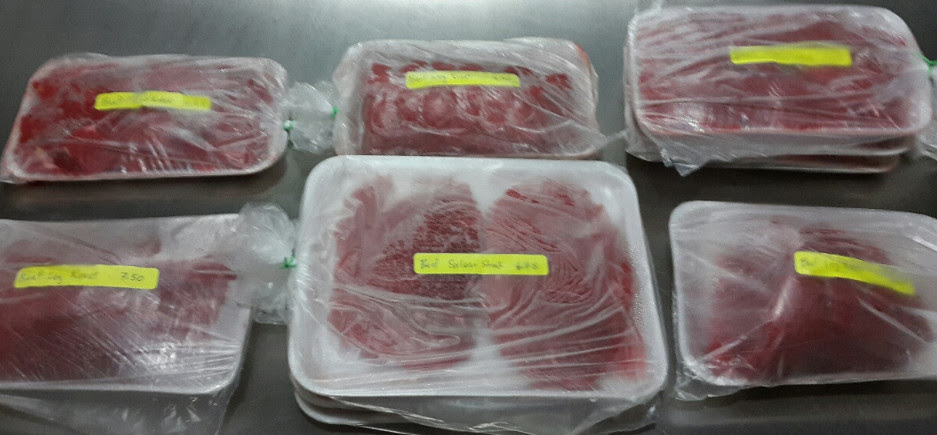
Pastured Pork
In intensive farming systems in the U.K., (just one example of a world-wide epidemic), piglets are born to sows in farrowing crates, which are so small the sows can’t even turn around. Piglets compete with each other for the sows milk, so they have their teeth clipped to minimize damage to the sow. At three weeks old, (much too soon), they are transferred to pens where they are fattened up on cereals (not what pigs evolved to eat) and fed routine antibiotics. Bred to grow quickly and fed growth hormones, they are ready for slaughter in about half the normal time. And, by the way, in the U.K. (and likely many other places) the definition of “outdoor bred pork” means that pigs are born outdoors and raised indoors. (Think about that!) In an investigation carried out by organic certification body “Soil Association”, 63% of pork samples tested in the U.K. had antibiotic-resistant E.Coli – which is the most common cause of urinary-tract infections, dangerous blood poisoning and can also cause meningitis. Yikes!
 In contrast, you will not experience anywhere else in Ecuador the quality of GRAN ROCAs dry aged, tender, flavorful, GringoPost Award winning Butchered Pork, butchered to North American standards. Our animals are young and well marbled. They eat whole foods like grass, sugar cane, bananas, yuca and NOT meat products or byproducts or any kind of commercial feed (like pretty much everybody else which contain antibiotics, hormones and other chemicals.) Like all of our animals, our pigs live in small groups, are well taken care of, and are able to see the natural daily cycles of day and night. It is a lot harder to do it this way, but you can taste the difference in every bite.
In contrast, you will not experience anywhere else in Ecuador the quality of GRAN ROCAs dry aged, tender, flavorful, GringoPost Award winning Butchered Pork, butchered to North American standards. Our animals are young and well marbled. They eat whole foods like grass, sugar cane, bananas, yuca and NOT meat products or byproducts or any kind of commercial feed (like pretty much everybody else which contain antibiotics, hormones and other chemicals.) Like all of our animals, our pigs live in small groups, are well taken care of, and are able to see the natural daily cycles of day and night. It is a lot harder to do it this way, but you can taste the difference in every bite.
Pastured Beef
 As it has been explained to me, much of the beef sold in Ecuador is “milk cow meat” and of very poor quality. As I see it, there is no reason to kill a milk cow that is producing milk. So, I can only conclude that if the animals are being taken to the slaughterhouse, they must no longer be producing sufficient (or any) milk. Why? I can only come up with two reasons. The animals are either “sick” or “old.”
As it has been explained to me, much of the beef sold in Ecuador is “milk cow meat” and of very poor quality. As I see it, there is no reason to kill a milk cow that is producing milk. So, I can only conclude that if the animals are being taken to the slaughterhouse, they must no longer be producing sufficient (or any) milk. Why? I can only come up with two reasons. The animals are either “sick” or “old.”
We have some direct knowledge of this here in a farming area in Yunguilla. There is a family business with a truck that regularly drives around looking for farms to buy cheap/unwanted cattle (read “sick” or “old”). These animals are “warehoused” on a road near our farm, so we see them, (enough to make you a vegetarian), before they are transported to Cuenca to the slaughterhouse.
In contrast, at GRAN ROCA, we have a program for pasture raised Artisan Charolais Steer, GringoPost Award winning Butchered Beef, (a breed for meat selected by fine dining establishments), dry aged (practically unheard of in Ecuador), professionally butchered to North American Standards, (practically unheard of in Ecuador), for you to prepare and serve the best meal ever.

